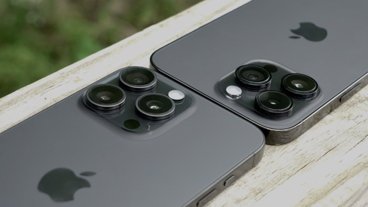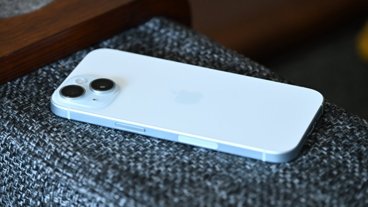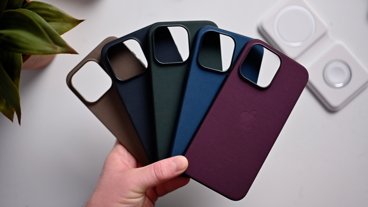Windows Phone 8 to address its "perceived inability to compete" with iPhone, Android later this year
A report by Pocket Now says upcoming features of WP8, code named Apollo, were presented in a video by Joe Belfiore, Microsoft's senior vice president managing Windows Phone development.
Among its goals are to support multiple core processors like those used by Apple in last year's iPad 2 and iPhone 4S and incorporated by a variety of Android licenses a year ago.
Microsoft also plans to support NFC, something Google launched at the end of 2010 in Android 2.3 Gingerbread and subsequently tied to its Google Wallet program last summer. Apple is also believed to be working on a payment program related to NFC contactless "tap to pay" systems, but is unlikely to advertise the feature until it has products to sell.
Microsoft also highlighted opportunities for developers to "reuse — by far — most of their code" when working between WP8 and the Windows desktop, a feature Apple pioneered in the iPhone OS 2.0 when it delivered an SDK using the same tools and APIs Mac OS X developers were already familiar with.
WP8 is said to be scrapping the remains of its Zune desktop client software, given that the company has now abandoned its Zune efforts to take on Apple's iPod. In its place, it appears the company will adopt an iCloud-like strategy for "seamless sharing of data between devices" built around the Skydrive cloud product Microsoft began talking about long before Apple delivered iCloud last year.
The company highlighted the growing library of apps for the existing WP7, and new plans to add native apps to the Silverlight-based WP7 platform, something that is expected to make it easier to port Android and iOS apps to WP8. WP7 development is currently based on Microsoft's largely abandoned effort to replicate the functionality of Adobe Flash, a strategy Microsoft began to abandon in late 2010, just as it started rolling out WP7.
Microsoft also outlined plans to eventually integrate Skype's proprietary video conferencing, which it acquired last summer a year after Apple unveiled FaceTime for iPhone 4. Existing Windows Phones lack support for a front facing camera, making Skype integration mostly useful to Windows Phone buyers who wait until next year.
WP8 is also said to enhance its networking and data usage with tools apparently similar to those debuted for Android. The report mentioned that WP8 will "actively attempt to give Wi-Fi connections precedence, going so far as to automatically connect to carrier-owned WLANs when in range," features that iOS introduced several years ago.
Microsoft also intends to deliver a proxy service to scale down data similar in concept to Opera Mini or Amazon's Silk browser, claiming a 30 percent reduction in data usage. Apple injects no filtering of iOS users' web data, but Apple also lacks a search engine business model that could materially benefit from harvesting users' browsing patterns like Microsoft and Amazon.
WP8 is said to deliver "full disk encryption," although it isn't detailed how this differs from the encryption Apple began using in 2010 with iOS 4 on iPhone 3GS, a feature required by default Exchange Serve policy.
"Overall," the report stated, "we're looking at a lot of changes and additions here, all of which seem designed to either bring Windows Phone in line with other platforms, feature-wise, or make it more closely identical to the desktop version of Windows."
A desktop kernel like Darwin
Windows enthusiast Paul Thurrott also added that WP8 will switch from a Windows CE based kernel to sharing the same kernel technology of the desktop Windows 8. Apple's original iPhone similarly debuted in 2007 with a mobile optimized version of Apple's Darwin Mac OS X kernel.
In addition to its kernel, Thurrott said WP8's "multi-core processor support, sensor fusion, security model, network, and video and graphics technologies" were also coming to the mobile platform from Microsoft's desktop efforts, another parallel with Apple's original iPhone design from 5 years ago. At the time Steve Jobs indicated Apple believed iPhone would put the company 5 years ahead of its competitors.
By strengthening WP8's enterprise feature set, Microsoft's platform is likely to gain in popularity among Windows-based shops at the expense of Android, which is notably lacking in support for IPSec VPNs, proxy servers and device policy management features. Android currently leads WP7 adoption by a huge margin, but is still far behind Apple's iOS and RIM's BlackBerry in the enterprise.
Still a ways away
WP8 is not the next release of Microsoft's mobile platform. Instead, the company will begin rolling out Tango, a minor update numbered WP 7.6 sometime in the second quarter. WP8 is expected later in the year, and its co-development with the desktop Windows 8 suggests a release towards the end of the year.
Microsoft's current market share for Windows Phone as a platform has not grown over the past year. According to Gartner, the company's share of worldwide smartphone sales actually collapsed from 2.7 percent in Q3 2010 to 1.5 percent in the Q3 2011.
Google released Android 4.0 in December, although it will take several months for the software to make it to the devices people actually use. Apple is expected to release iOS 5.1 next month alongside iPad 3, and will likely present or possibly release iOS 6 this summer at the company's Worldwide Developer Conference.
 Daniel Eran Dilger
Daniel Eran Dilger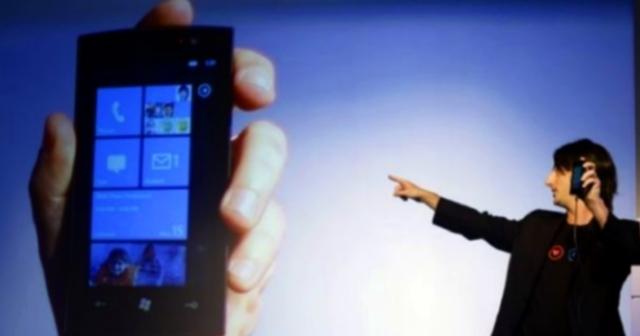
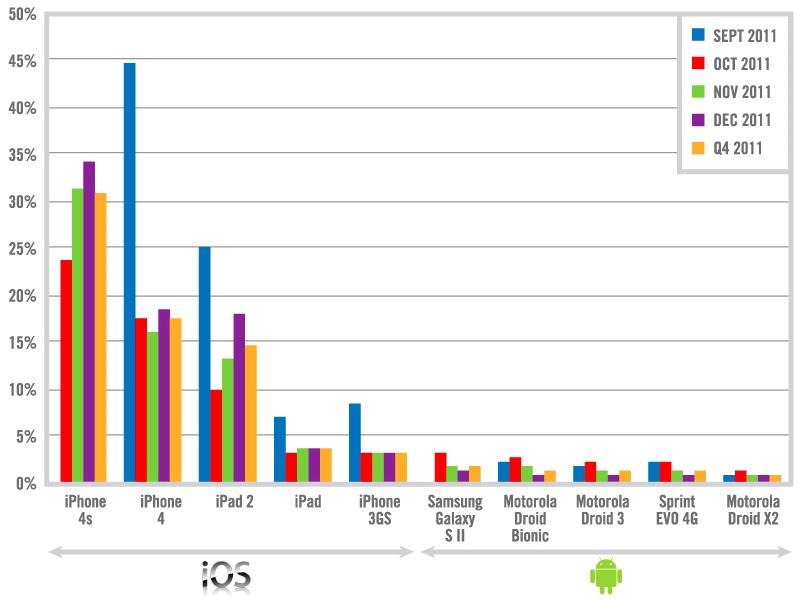
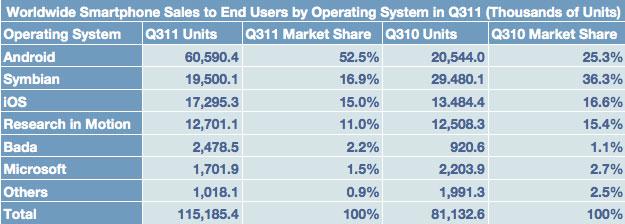


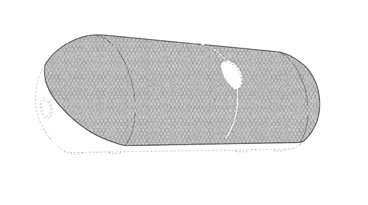








 Amber Neely
Amber Neely
 Christine McKee
Christine McKee
 Malcolm Owen
Malcolm Owen
 Mike Wuerthele and Malcolm Owen
Mike Wuerthele and Malcolm Owen

 William Gallagher
William Gallagher

